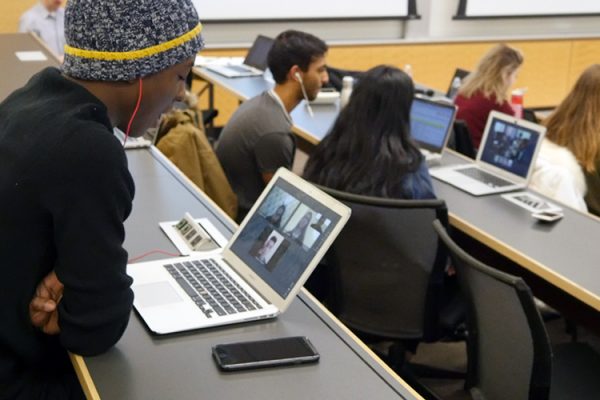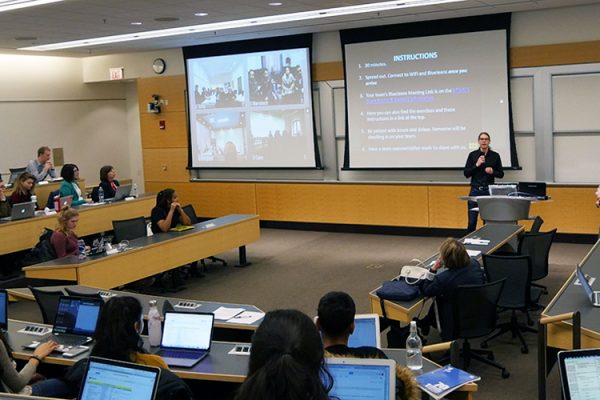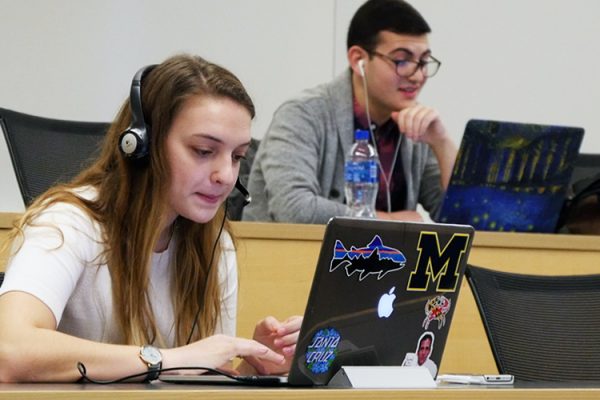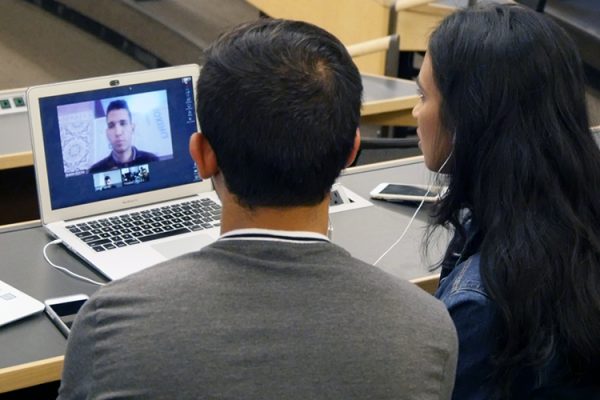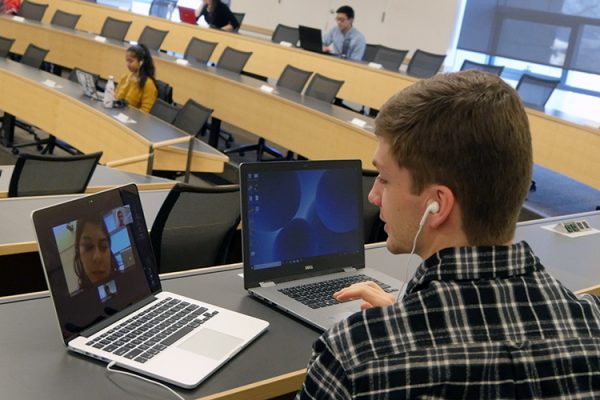How can technology best support U-M teaching and learning? Ask the William Davidson Institute (WDI), a nonprofit education and research organization at the Ross School of Business.
WDI has created a “virtual exchange” of undergraduate students across cultures in an eight-week challenge of social entrepreneurship. The program is called MENA-Michigan Initiative for Global Action Through Entrepreneurship (M²GATE), and it connects U-M undergrads with students in the Middle East and North Africa (MENA) to create a meaningful, international experience.
“This is a new form of exchange.”
—Amy Gillett
“This is a new form of exchange,” said Amy Gillett, vice president of the William Davidson Institute’s Education Initiative. “Michigan is huge on in-person exchange, and we’re happy to be involved in a virtual exchange for the first time, bringing students together who would otherwise not get the chance to meet, let alone collaborate on a high-impact project.”
M²GATE aims to provide solutions to low- and middle-income countries—namely Egypt, Libya, Morocco, and Tunisia. With videoconferencing technology on their side, their goal is to make life-changing, cross-cultural experiences available to young people in a global classroom. The learning outcomes are no less ambitious. Students who participate in M²GATE build STEM-based skills through entrepreneurship and cross-cultural understanding.
The learning outcomes are no less ambitious. Students who participate in M²GATE build STEM-based skills through entrepreneurship and cross-cultural understanding.
“The ability to work on global, virtual teams is a skillset of future, and it’s a guiding principle in this grant project,” said Nathan Rauh-Bieri, program administrator of the William Davidson Institute’s Education Initiative. The digital nature of the program also allows interactive breakout exercises that keep students engaged. The eight-week program’s first cohort began on January 26, 2018, and additional cohorts are schedule for April–June and May–July.
Under the hood
How does the magic happen? WDI developed an in-house learning management system called ExtendEd that supports M²GATE. ExtendEd was developed over two years as a way to organize short-term education programs. The tool presents learning as a before-during-after process—extending education over time—and allows administrators and participants to easily share resources.
Video also plays an important role in the curriculum. Teams complete online learning modules hosted on the ExtendEd portal on a week-to-week basis, honing their entrepreneurial skills to create a scalable solution to the problem they identified. The final deliverable is a video pitch that addresses a social challenge.
A team effort
M²GATE and ExtendEd benefit from a team of experts at U-M. Christerfer Frazier, IT project manager at WDI, advised the team on the use of BlueJeans videoconferencing, an essential part of the virtual exchange. “We’re really happy U-M is using BlueJeans. All of our tests have been smooth,” said Rauh-Bieri.
Todd Austin, senior IT consultant and videoconferencing lead for LSA Instructional Support Services, was instrumental in moderating the program’s orientation, a synchronous BlueJeans event between U-M students in Ann Arbor and their peers at sites in Egypt, Libya, Morocco, and Tunisia. Sheri Fillip, operations scheduler for Ross IT, managed the classroom’s video, audio, and recording. Chris Visel, instructional support manager for Michigan Ross IT, also played an important role by demonstrating the video recording capabilities at Ross.
“Ross IT is tremendously supportive,” said Rauh-Bieri. “They have been very gracious with their time and expertise.”
“Ross IT been very gracious with their time & expertise.”
—Nathan Rauh-Bieri
Each e-learning module is created in-house at WDI. The WDI team also worked closely with the Ross Media Studio—Greg Barker, senior media producer, helped film some of the sessions and provided technical advice.
All of the work behind the scenes serves the same positive outcome: invaluable teaching and learning.
“To be able to connect these students—especially those with restricted travel—is huge,” said Gillett.
Read more about the M²GATE program in Michigan News and The Michigan Daily. The program is still accepting applications from U-M applicants until spaces are filled or until March 1.

